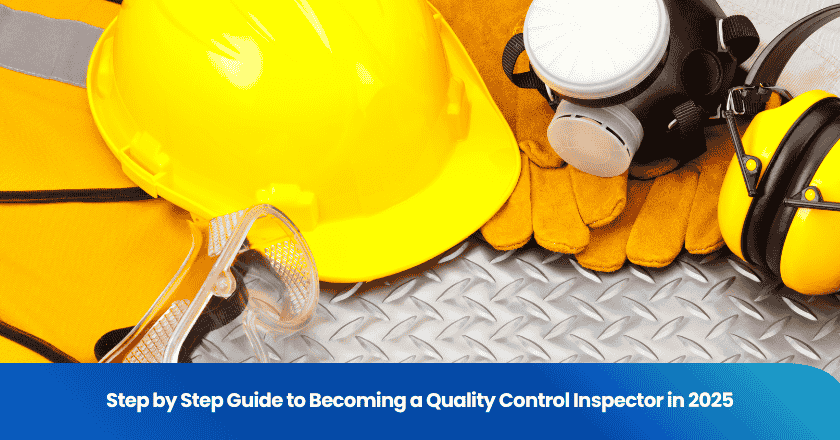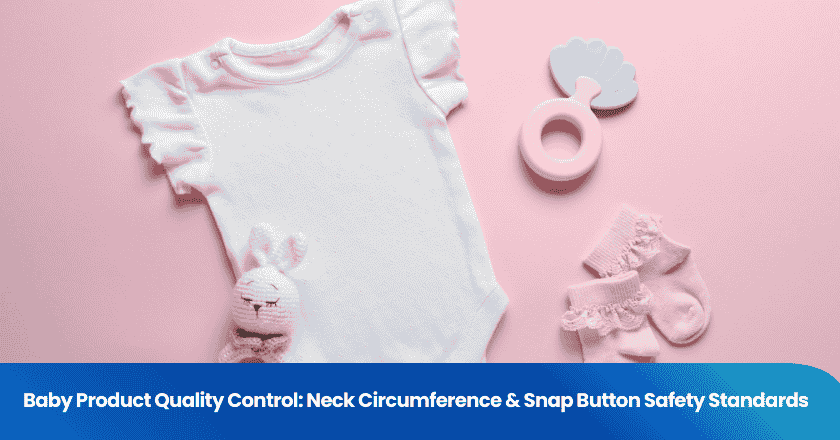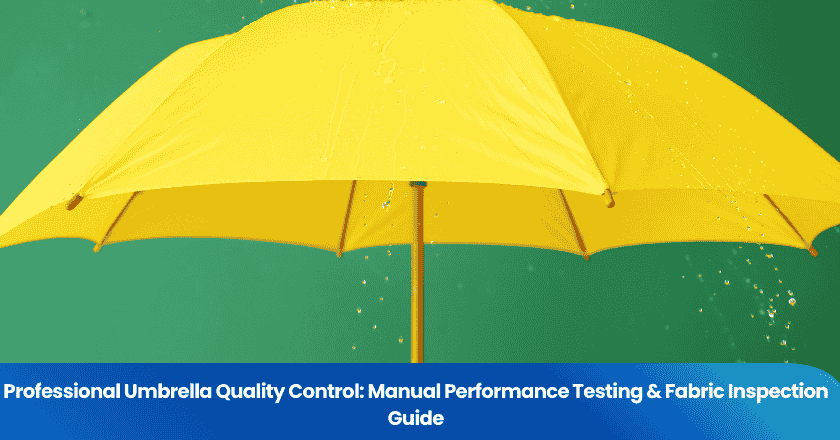
You can become a quality control inspector in 2025 by building the right foundation and taking decisive steps. The demand for quality control inspectors continues to rise as industries focus on safety and consistency. If you want a stable career, develop your education, master essential skills, earn certifications, and actively pursue job opportunities.
> Take action now and start your journey toward a rewarding profession.
Key Takeaways
- Start your journey as a quality control inspector by obtaining a high school diploma. This foundational education is crucial for understanding basic math and communication skills.
- Consider earning an associate's degree in manufacturing or quality assurance. This advanced education enhances your job prospects and prepares you for more responsible roles.
- Develop both technical and soft skills. Focus on attention to detail, communication, and problem-solving to excel in inspections and teamwork.
- Gain practical experience through entry-level jobs or internships. These opportunities help you learn inspection techniques and build a professional network.
- Pursue relevant certifications like ISO 9001 or Six Sigma. These credentials improve your qualifications and open doors to advanced positions in the field.
Role of Quality Control Inspectors
Responsibilities
As a quality control inspector, you play a vital role in maintaining product standards and safety. You focus on a range of responsibilities that ensure products meet strict requirements before reaching customers. Your daily tasks involve inspecting materials, monitoring production processes, and verifying compliance with regulations. You use specialized tools to measure and test products, making sure each item matches specifications.
Here is a table outlining the primary responsibilities you will handle in this career:
| Responsibility | Description |
|---|---|
| Defect Identification | Spotting flaws and discrepancies in products. |
| Adherence to Quality Standards | Ensuring compliance with industry regulations and safety guidelines. |
| Operating Testing Equipment | Using tools like calipers and gauges for precise assessments. |
| Collaboration | Working with production teams and engineers to address quality issues. |
| Root Cause Analysis | Investigating underlying causes of defects to prevent recurrence. |
| Process Improvement | Providing feedback to enhance production processes. |
| Final Inspection | Conducting a last check before product distribution. |
| Reporting | Generating reports on inspection results and corrective actions. |
| Training | Educating new employees on quality control procedures. |
| Continuous Monitoring | Maintaining quality standards throughout the manufacturing process. |
| Adherence to Safety Regulations | Ensuring compliance with occupational health and safety guidelines. |
You also perform visual inspections, physical and dimensional testing, and functional testing. You document your findings and maintain records for compliance. You make sure products meet industry standards and regulations. Your responsibilities help prevent defects and improve overall product quality.
Tip: Developing strong attention to detail and communication skills will help you excel in these responsibilities.
Work Environments
Quality control inspectors work in diverse settings. You may find opportunities in manufacturing plants, laboratories, or production facilities. Industries that employ the highest number of quality control inspectors include aerospace, electronics, pharmaceuticals, food and beverage, and energy.
You may work in environments that require protective gear and strict safety protocols. You often collaborate with engineers, production managers, and other inspectors. Your responsibilities may shift depending on the industry, but your focus on quality remains constant. This career offers you the chance to work in dynamic and evolving industries.
Education Requirements
High School Diploma
You need a high school diploma or equivalent to start your journey as a quality control inspector. Most employers set this as the minimum education requirement. Your diploma shows you have basic math, reading, and communication skills. These skills help you understand instructions, record inspection results, and follow safety guidelines. You build a strong foundation for further training and advancement in your career.
Tip: Focus on math and science classes during high school. These subjects help you develop analytical thinking and problem-solving skills.
Associate's Degree
Earning an associate's degree in manufacturing, quality assurance, or a related field can boost your job prospects. Employers often prefer candidates with advanced education because you gain specialized knowledge and hands-on experience. You learn about industry standards, inspection techniques, and regulatory compliance. This degree prepares you for roles with more responsibility and higher pay.
You develop strong attention to detail, excellent problem-solving skills, and knowledge of industry regulations. You also gain experience with quality control techniques and tools. These skills make you a valuable candidate for employers seeking quality control inspectors.
Relevant Courses
You should take courses that build your technical and practical skills. Educational institutions recommend classes in math, science, and computer literacy. These subjects help you analyze data, understand measurements, and use inspection equipment. You also benefit from specialized training programs that focus on quality control methods.
You may also find courses such as hotel housekeeping inspection and workplace inspections. These classes teach you how to create checklists, conduct inspections, and monitor processes. Some programs offer Level I QC School, which introduces plant quality control training and fundamental topics like mix design concepts. You must pass certification examinations with a minimum score to demonstrate your skills.
Note: Taking relevant courses helps you stay competitive and prepares you for certification exams. You gain practical experience and improve your inspection accuracy.
Skills for Quality Control Inspector
As you pursue a career as a quality control inspector, you must develop a strong set of skills that employers value. These skills help you perform inspections accurately, communicate findings, and maintain high standards in every workplace.
Technical Skills
You need technical skills to succeed as a quality control inspector. Employers look for candidates who understand quality assurance and regulatory compliance. You must know how to write inspection reports and assess risks. Data analysis helps you interpret results and identify trends. Maintenance and repair knowledge allows you to inspect mechanical or electrical systems. Safety inspections ensure that workplaces meet safety standards. You must implement quality control measures and solve problems quickly. Documentation management keeps your records organized. You operate inspection equipment, such as lasers or cameras, with confidence. Communication skills help you share information with your team. Project management lets you plan and execute inspections efficiently. Teamwork ensures accurate results. You should use inspection software to streamline your work. Creating standard operating procedures helps maintain consistency. Time management allows you to meet deadlines. A mindset focused on continuous improvement drives you to reduce errors and increase efficiency. Customer service and stakeholder engagement round out your technical skills.
- Quality Assurance (QA)
- Regulatory Compliance
- Inspection Report Writing
- Risk Assessment
- Data Analysis (Statistics)
- Maintenance and Repair Knowledge
- Safety Inspections
- Quality Control (QC)
- Problem-Solving
- Documentation Management
- Inspection Equipment Operation
- Communication Skills
- Project Management
- Teamwork
- Proficiency in Inspection Software
- Standard Operating Procedure (SOP) Creation
- Time Management
- l Continuous Improvement Mindset
- l Customer Service
- l Stakeholder Engagement
Tip: You should focus on basic math, science, and computer literacy. These foundational skills help you analyze data, measure products, and use inspection software.
Soft Skills
Soft skills play a critical role in your effectiveness as a quality control inspector. You must pay close attention to detail to spot small mistakes that could affect product quality and safety. Strong communication skills allow you to share findings with production teams and management. Problem-solving helps you address issues quickly. You need teamwork to collaborate with others and achieve accurate results. Time management ensures you complete inspections on schedule.
Note: Employers value quality control inspectors who demonstrate reliability, adaptability, and a commitment to continuous improvement.
Tools & Equipment
You must become familiar with the tools and equipment used by quality control inspectors. Visual inspection techniques help you assess products quickly. Measurement inspection tools, such as calipers and micrometers, provide precise measurements. Functional testing methods allow you to evaluate product performance. Destructive testing helps you understand material limits. You use cameras and gauges for detailed inspections. Software for quality control streamlines your inspection process and helps you analyze data.
Tip: You should practice using inspection tools and software regularly. This hands-on experience will improve your accuracy and efficiency.
Quality control inspectors rely on a combination of technical and soft skills, along with expertise in inspection tools and equipment. You must develop these skills to excel in your role and advance your career.
Experience & Training
Entry-Level Jobs
You begin your journey as a quality control inspector by seeking entry-level jobs. These positions introduce you to the basics of inspection and manufacturing processes. You work under supervision and learn how to identify defects, record findings, and follow safety protocols. Entry-level roles often include titles such as junior inspector, quality technician, or production assistant. You gain practical experience and develop essential skills for your career.
Tip: Apply for entry-level positions in industries like electronics, food production, or pharmaceuticals. These sectors offer many opportunities for new quality control inspectors.
Here is a table showing common entry-level job titles and their main responsibilities:
| Entry-Level Job Title | Main Responsibilities |
|---|---|
| Junior Inspector | Assisting with inspections, reporting |
| Quality Technician | Testing products, maintaining records |
| Production Assistant | Supporting quality checks, documentation |
On-the-Job Training
Most quality control inspectors start with on-the-job training. You receive guidance from experienced professionals and learn inspection techniques directly in the workplace. Training programs cover equipment operation, safety standards, and documentation procedures. You practice using inspection tools and software, which helps you build confidence and accuracy. On-the-job training usually lasts several weeks or months, depending on the complexity of the role.
Note: You should ask questions and seek feedback during your training. This approach helps you improve your skills and adapt to different inspection environments.
Internships
Internships provide valuable hands-on experience for aspiring quality control inspectors. You work alongside skilled professionals and participate in real inspection tasks. Internships allow you to apply classroom knowledge in practical settings. You observe quality control processes, assist with inspections, and learn industry standards. Many companies offer entry-level internships to students and recent graduates. Completing an internship increases your chances of securing a full-time entry-level position.
- You gain exposure to different industries.
- You develop technical and soft skills.
- You build a professional network for future career growth.
Tip: Search for entry-level internships through job boards, school career centers, or company websites. Internships help you stand out when applying for entry-level jobs.
Certifications
Key Certifications
You need to earn essential certifications to stand out as a quality control inspector. These credentials show employers that you have the knowledge and skills to perform inspections at a high standard. Many industries require certifications for quality control inspectors, especially for specialized roles or leadership positions. The following table highlights some of the most recognized certifications for quality control inspectors and their focus areas:
| Certification Name | Description |
|---|---|
| ISO 9001 Lead Auditor Certification | Ideal for professionals responsible for auditing QMS against ISO 9001 standards. |
| Six Sigma Certification Levels | Yellow Belt: Introduces Six Sigma fundamentals; Green Belt: Directs tactical process improvements; Black Belt: Oversees strategic cross-functional projects. |
| Certified Quality Engineer Certification (CQE) | Concentrates on engineering principles, quality control, risk management, and analysis. |
| Certified Quality Auditor Certification (CQA) | Instructs on conducting process audits, documenting results, and maintaining compliance. |
| CMQ/OE | Applicable for top leaders who desire to promote quality across the enterprise. |
You should review the eligibility requirements for each certification. Some require work experience or specific education. Earning these essential certifications can open doors to advanced positions and help you build a long-term career.
Exam Preparation
Preparing for certification exams is a key step for quality control inspectors. Start by reviewing the exam content outline and study guides. Practice with sample questions and take mock exams to test your knowledge. Join study groups or online forums to discuss topics and clarify doubts. Set a regular study schedule and focus on areas where you need improvement.
Tip: Use official resources and training courses to strengthen your understanding of quality standards and inspection techniques.
Continuing Education
You must keep your skills current in the fast-changing world of quality control. Many certifications for quality control inspectors require ongoing education or periodic renewal. Attend workshops, webinars, and industry conferences to stay updated on new regulations and technologies. Subscribe to professional journals and join industry associations. Continuous learning helps you maintain your essential certifications and remain competitive as a quality control inspector.
Staying committed to learning ensures you grow in your career and adapt to new challenges in quality control.
Job Search for Quality Control Inspector
Where to Apply
You can find opportunities for quality control inspectors on several job search platforms. Popular sites include Indeed, LinkedIn, and Glassdoor. Many companies post openings on their own career pages. You should also check specialized manufacturing and engineering job boards. Industries hiring quality control inspectors include aerospace, electronics, pharmaceuticals, food and beverage, and energy. You may find roles in production facilities, laboratories, and research centers. Networking with professionals in these industries can help you discover hidden job openings.
Tip: Set up job alerts on multiple platforms to receive notifications about new positions.
Resume Tips
Your resume should highlight your technical skills and achievements. Use clear formatting and organize your experience in reverse chronological order. Start each bullet point with an action verb. Focus on relevant work experience that shows your ability to perform inspections and maintain quality standards. Keep your resume to one page if you have less than ten years of experience. If you have more experience, you may use up to two pages.
- Focus on achievements and responsibilities that relate to quality control.
- Use numbers to show your impact, such as improved inspection accuracy or reduced defects.
Interview Prep
You should prepare for interviews by reviewing common questions for quality control inspector roles. Employers often ask about your attention to detail, technical competence, and ethical decision-making. You may face questions about handling quality issues, using data analysis, and adapting to new regulations. Practice answering questions about your experience with ISO 9001 standards and inspection routines. Be ready to discuss methods for identifying inconsistencies and maintaining accuracy in high-volume tasks.
- Expect behavioral questions about process improvement and judgment in quality situations.
- Prepare to explain steps taken during inspections and strategies for working with suppliers.
- Review your experience and be ready to share examples of how you solved problems.
Note: Practicing your answers and researching the company will help you feel confident during your interview.
Success Tips
Networking
Building a strong professional network can accelerate your growth as a quality control inspector. You connect with peers, mentors, and industry leaders who can offer guidance and share job opportunities. You should attend workshops and seminars that focus on the latest technologies and quality management techniques. These events help you learn new methods and meet others in your field. Joining professional organizations allows you to stay informed about industry trends and best practices. You can also enroll in online courses to refine your skills and remain competitive in the job market.
- Attend workshops and seminars on quality management.
- Join professional organizations to connect with industry leaders.
- Take online courses to improve your skills and knowledge.
Networking opens doors to new opportunities and helps you stay ahead in your career.
Staying Updated
You need to stay current with changes in regulations, technology, and inspection methods. The quality control field evolves quickly, and employers value inspectors who adapt to new standards. You can subscribe to industry journals, participate in webinars, and follow thought leaders on professional platforms. Regular learning ensures you maintain your skills and understand the latest requirements. Staying updated also prepares you for certification renewals and helps you deliver accurate inspections.
- Subscribe to industry publications.
- Attend webinars and online events.
- Follow experts and organizations on professional networks.
Professional Standards
Maintaining high professional standards sets you apart as a reliable quality control inspector. You must follow robust quality control processes to build trust with customers and avoid negative feedback. Consistency in your work ensures that products meet expectations and comply with regulations. You should always align your inspections with industry standards and use certified methods. This approach protects your reputation and supports operational excellence.
- Consistent quality builds trust with customers.
- Compliance with regulations prevents legal issues.
- Certified inspections enhance credibility and effectiveness.
Upholding professional standards and focusing on continuous improvement will help you achieve long-term success in your career.
To become a quality control inspector in 2025, you follow these essential steps:
1. Explore the role and industry.
2. Obtain the necessary education.
3. Develop key skills.
4. Gain experience.
5. Seek certifications and specializations.
6. Apply for jobs and continue learning.
You join a respected field that values your expertise and offers stable opportunities. Embrace ongoing training, adapt to new technologies, and set clear goals. Your commitment ensures a rewarding career and lasting impact on product quality.
FAQ
What qualifications do you need to become a quality control inspector?
You need a high school diploma or equivalent. An associate’s degree in manufacturing or quality assurance improves your chances. Employers value technical skills, attention to detail, and relevant certifications.
How long does it take to become a quality control inspector?
You can start entry-level roles after graduating high school. Earning an associate’s degree takes about two years. Certification programs and on-the-job training may require several months.
Do you need certification to work as a quality control inspector?
Certification is not always required for entry-level jobs. You should earn certifications like ISO 9001 or Six Sigma to qualify for advanced positions and increase your earning potential.
What industries hire quality control inspectors?
You find jobs in manufacturing, aerospace, electronics, pharmaceuticals, food and beverage, and energy. Many companies need inspectors to maintain safety and quality standards.
What skills help you succeed as a quality control inspector?
You need strong attention to detail, technical knowledge, and communication skills. Familiarity with inspection tools and software helps you perform accurate assessments and report findings.
Grow your business with TradeAider Service
Click the button below to directly enter the TradeAider Service System. The simple steps from booking and payment to receiving reports are easy to operate.





